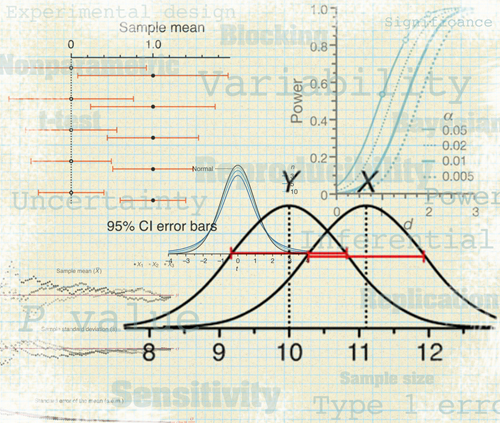C-FAHR started as part of the "Transformative Excellence Program" which granted us the resources to
cluster-hire a set of scholars who further the interdisciplinary research strengths on our campus related to families and health. We are pleased to introduce you to our new hires.
KIM KAPHINGST, PhD
Professor of Communication
Dr. Kimberly Kaphingst is a health communication researcher. Her research interests are in health literacy, cancer communication, family history, and the communication of genetic and genomic information. She led a series of intramural studies at the National Human Genome Research Institute (NHGRI) that examined predictors of individuals' understanding of and responses to genetic information across various disease outcomes. She was a Co-Investigator on the study team for the intramural Multiplex Initiative at NHGRI, a study designed to examine uptake of multiplex genetic susceptibility testing among a population-based sample of healthy adults ages 25-40. Dr. Kaphingst led the working group that developed the Multiplex genetic susceptibility test results feedback strategy and examined participants' use of the study website and how this affected their decision making for uptake of the Multiplex test. She also led an analysis of participants' recall and comprehension, affective responses, and information seeking and health behaviors following receipt of the test results feedback. Dr. Kaphingst was the Principal Investigator on a recently completed study (R01 CA168608) to examine preferences for return of genome sequencing results among young breast cancer patients. She also co-led a supplemental project to the Program for the Elimination of Cancer Disparities grant (3U54CA153460) at Washington University, which examined preferences for models of consent for secondary research uses of biospecimens among a diverse sample of women. She previously led a qualitative investigation of African American women's reactions to and use of two family history tools. In her current work, Dr. Kaphingst is investigating understanding of shared familial risk and family communication among Caucasian, Latino, and Pacific Islander families. Dr. Kaphingst joined the University of Utah faculty in 2015.
------------------------
The next three hires are joining the faculty at the University of Utah now, at the start of the 2016 academic year. Welcome!
 BRUCE ELLIS, PhD.
Professor of Psychology
BRUCE ELLIS, PhD.
Professor of Psychology
"As an overarching goal of my career, I seek to
leverage knowledge from both evolutionary biology and developmental science to
address core issues in developmental psychopathology, especially in relation to
child and adolescent health. This work employs life history theory to model
stress-health relations over the life course.
A major emphasis of my research has been the development of Biological
Sensitivity to Context theory and its recent extension the Adaptive Calibration
Model, which focus on how our biobehavioral systems respond to specific
features of family environments and the larger ecological context. My empirical work examines the impact of
fathers, family relationships, and socioecological conditions on children’s
biological stress responses, timing of pubertal development, risky adolescent
behavior and cognition, and related health outcomes. In
addition to this basic research, I am interested in real-world applications in
the form of theoretically-based interventions."
PASCAL DEBOECK, PhD
Associate Professor of Psychology
"Trained as a quantitative psychologist, I work to develop, improve, study and apply statistics to social science and medical data. My interests are focused on the development and application of methods for the analysis of intensive, intraindividual time series. In particular I focus on the development and application of derivatives, differential equation modeling, and dynamical systems concepts to time series that have characteristics common to behavioral and some physiological measures such as relatively low sampling rates, large amounts of measurement and/or dynamic error, and unequally spaced or missing observations. In analyzing such data, I often focus on questions related to the role of variability and less-stable change (the “error” in many statistical models). These methods have the potential to inform theories that address how, when and why people change over time. I have worked with a range of applied topics including: resiliency and affect in older adults, health and depression as long-term outcomes of daily stress processing, marital quality and child well-being, sustained attention while driving, adult attachment, the coupling of maternal depression with child behavior, modeling of proteins associated with Alzheimer's, mood change in patients with rapid cycling bipolar disorder, and the motion of dancing individuals and dyads."
DANIEL ADKINS, PhD
Assistant Professor of Sociology
Dr. Daniel E Adkins was awarded his PhD in Sociology from the University of North Carolina, Chapel Hill. He has since been supported by various NIH grants, including an NIMH K01 Career Development Award providing him with five years of post-doctoral training in statistical genomics and bioinformatics at the VCU Center for Biomarker Research and Precision Medicine. His research, broadly quantitative and interdisciplinary, integrates social inequality perspectives on stress with genomic big-data to map how social disadvantage becomes epigenetically encoded, thus influencing downstream gene expression, health, and behavior. He has published over 40 peer reviewed articles in high impact sociology, psychiatry and genetics journals.
as a quantitative psychologist, I work to develop, improve, study and apply statistics to social science and medical data.









